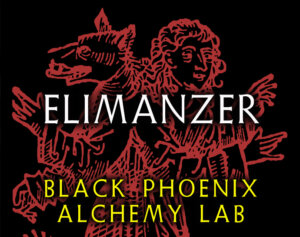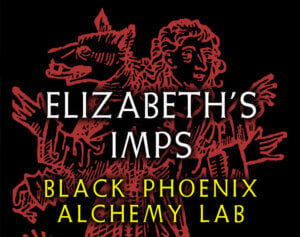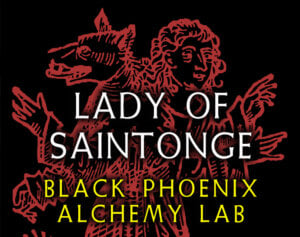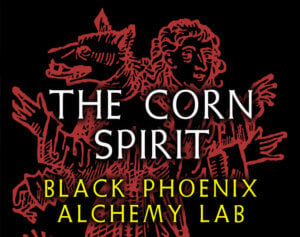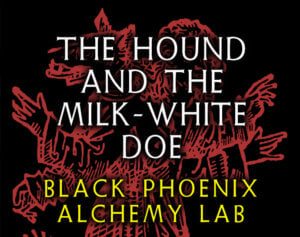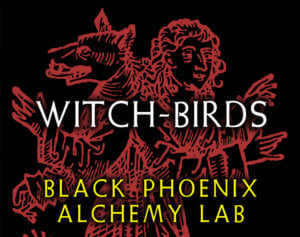Human Animals
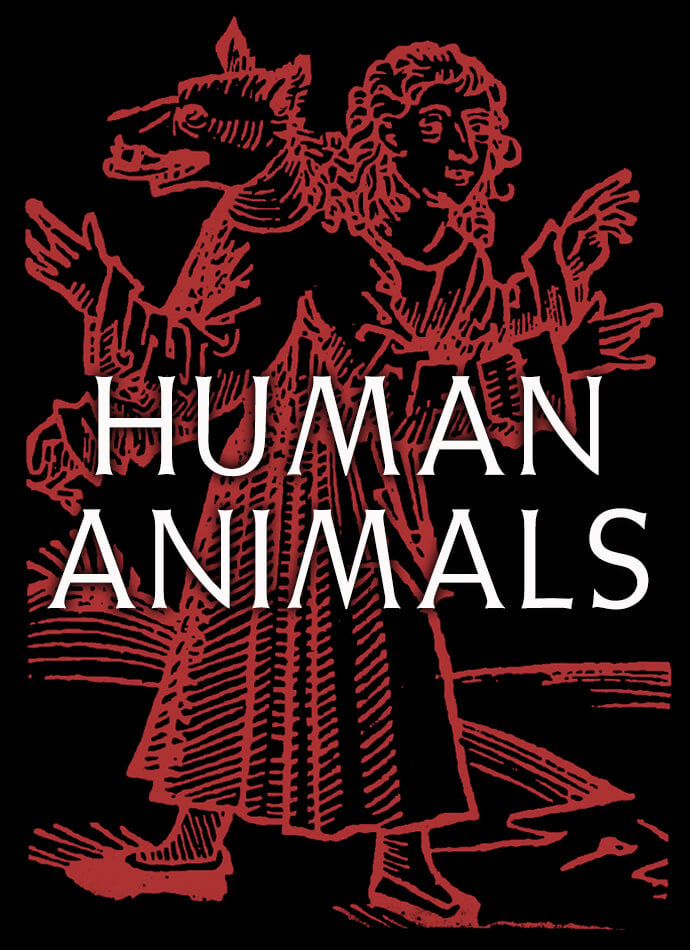
Changes may be voluntary or involuntary, self-transformation belonging more frequently to the former class and transformation by sorcery, witchcraft or black magic more often to the latter class. The motives of a human being who wishes to change into an animal are naturally regarded with suspicion. Greed, cruelty, and cannibalism are accusations brought against those who were tried in the Middle Ages for the crime of lycanthropy, the transformation into a wolf or other wild beast. The desire to taste human flesh is a horrible but not improbable reason for the offence. The wish to inspire fear or to gain personal power over others are motives for impersonating wild and fearsome animals, as effective where superstitious people are concerned as the less common faculty of transforming actual flesh.
— Frank Hamel, 1915
The following fragrances are drawn from colorful passages in Human Animals, a 1915 compendium of folklore about humans transforming into animals, or encounters with animals which were presumed to be supernatural entities in disguise.
-
Bringer of Evil Perfume Oil
Out of StockIn one case a blue butterfly was seen to flutter over a certain farm, and as affairs there had not been going at all well, it was looked upon with dread and suspicion as the bringer of evil. For three weeks the insect hovered about and during that period ‘no butter came.’ Then the farmer decided to take steps to break the enchantment. Armed with a wet towel he sallied forth to chase the alleged familiar and, cleverly flapping his cloth, he brought down the butterfly at a swoop. Precisely at that moment a woman, who was suspected of being a witch, was found lying dead outside the door of her house close by, and after the double event there was no further trouble with the churning.
A foreboding tremble of poppy leaf, cerulean musk, violet grapefruit, mimosa, orris butter, and benzoin.
-
Elimanzer Perfume Oil
Out of StockAnother woman suspected of witchcraft was Helen Clark who confessed on April 11th that the devil had appeared to her in the likeness of a white dog, and that she called her familiar Elimanzer and that she fed him with milk-pottage and that he spoke to her audibly and bade her deny Christ.
Strangely sinister frumenty: oatmeal, heavy cream, butter, salt, and a whiff of brimstone.
-
Lady of Saintonge Perfume Oil
Out of StockAnother story in which the human being suffers from the wound inflicted on the wer-wolf concerns a fine lady of Saintonge, who used to wander at night in the forests in the shape of a wolf. One day she caught her paw in a trap set by the hunters. This put an end to her nocturnal wanderings, and afterwards she had to keep a glove on the hand that had been trapped, to conceal the mutilation of two of her fingers.
Perfumed black silk encasing a mangled, blood-spattered talon of white sandalwood, ivory accord, and inky fur.
-
The Corn Spirit Perfume Oil
Out of StockThe Corn Spirit is supposed to take the form of a cat, and in some places in Germany children have been warned not to go into the corn-fields because ‘The cat sits there.’ In Silesia the reaper who cuts the last corn is called the ‘Tom-cat’ and is dressed up in rye-stalks, wearing a long plaited tail.
Rye stalks, corn husks, hay absolute, tilled soil, and German chamomile.
-
Witch-Birds Perfume Oil
Out of StockIn Sweden tradition says that sorcerers on Walpurgis night ride to Blocula and there turn into magpies. A lady at Carlstadt in that country was haunted by witch-birds in a very unpleasant manner. Having insulted a Finn woman who had begged food of her she told her to take a magpie that was hanging in a cage and eat it if she was hungry. The Finn cast an ‘evil eye’ on the lady for this insult but took the bird away with her. Some time after the Swedish lady noticed that whenever she went out a magpie came hopping in front of her. This happened for some days running, and then the magpie was joined by a companion bird, and presently by a number. The lady began to get frightened, but the more she tried to get rid of these strange companions the more numerous they became. They perched on her shoulders, tugged at her dress, and pecked at her ankles. In despair she shut herself up indoors, but they remained outside, and as soon as the door was open in they hopped. At last she went to bed and had the shutters closed, and the magpies kept on tapping outside till she died.
Blinding-white mallow and vanilla sandalwood streaked with indigo opium pod accord, velvet black violet petals, wild plum, and opoponax.

